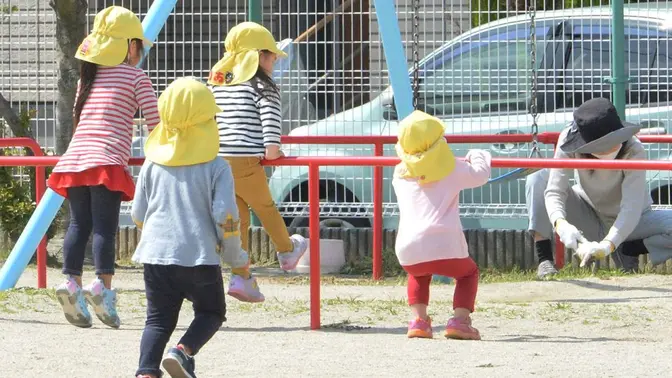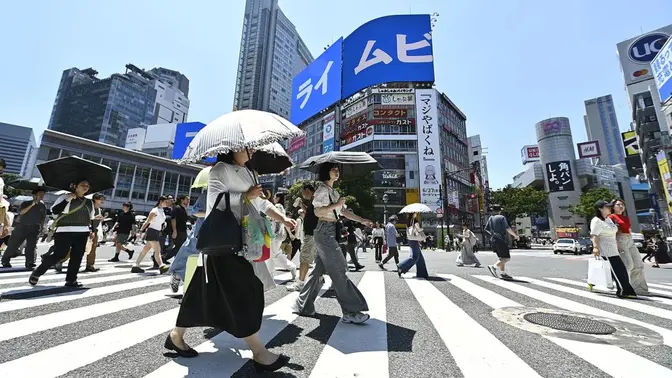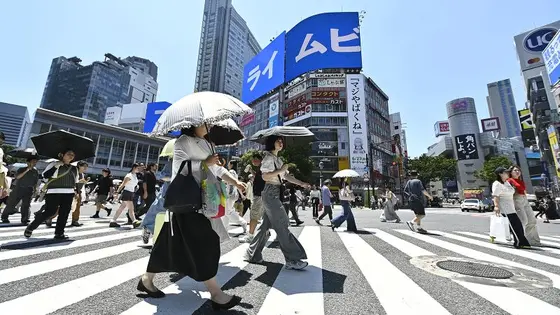T4K3.news
Japan reports record population decline with over 900,000 fewer citizens
The country's population fell to 120 million, marking the biggest drop on record.

Japan experiences its largest population drop in history as birth rates fall sharply and elderly numbers rise.
Japan faces record population decline as birth rates hit new lows
Japan's population shrank by over 900,000 last year, marking the largest annual decline on record according to government data. Released by the Ministry of Internal Affairs and Communications, the figures reveal a troubling drop, with the current population now at 120 million. The decline, which has persisted for 16 years since a peak of 126.6 million in 2009, results from a variety of factors, including economic pressures and longstanding gender norms.
Last year, only 687,689 births were recorded, the lowest since 1968, while deaths surged to nearly 1.6 million. As the elderly population grows to nearly 30%, the shrinking workforce threatens the sustainability of Japan's social infrastructure, particularly its pension and healthcare systems. Despite government initiatives aimed at boosting birth rates, including financial incentives and promoting gender equality, the trend looks grim. The working-age population, now just 59%, is significantly lower than the global average.
Experts suggest that potential solutions could lie in increasing immigration. The government is exploring avenues to bring in more foreign workers, evidenced by a 10% rise in foreign residents last year. However, cultural resistance to immigration and challenges related to societal integration remain formidable obstacles.
Key Takeaways
"The proportion of elderly is too high, accounting for nearly 30% of the entire population."
This highlights the aging crisis Japan faces amidst a declining birth rate.
"Experts have pointed to Japan's high cost of living and stagnant economy as key reasons for declining birth rates."
This statement sheds light on the socio-economic factors affecting family planning.
The current demographic crisis presents a dual challenge for Japan: not only does the workforce shrink at alarming rates, but societal structures must also adapt to ensure younger generations can thrive. As Japan grapples with deeply entrenched patriarchal norms, which often deter young couples from starting families, the state's response has been both crucial and complex. Support for increased immigration offers a possible lifeline, but it will require a significant cultural shift in a society historically reticent towards ethnic diversity. The consequences of inaction are severe, with projections indicating a 30% population drop by 2070, highlighting the urgent need for effective policy measures.
Highlights
- Japan's population fell by a record 900,000 last year, proving the crisis deepens.
- Births are at a historic low while deaths continue to rise, marking a worrying trend.
- A potential solution to Japan's population crisis lies in increasing immigration.
- Japan's society faces a complex challenge as it adapts to shrinking populations.
Japan's population decline raises urgent care and economic concerns
The rapid drop in population will strain pension and healthcare systems, demanding immediate attention from policymakers. Social structures are already feeling the impact as the workforce shrinks, limiting economic growth and innovation. This situation could provoke substantial public reaction as the consequences affect every segment of society.
Japan's demographic challenges present a complex landscape for policymakers and its citizens alike.
Enjoyed this? Let your friends know!
Related News

Japan sees record drop in population in 2024

Polling shows British support for strict anti-immigration policies

Existing-home sales decrease in June

Japan sets up task force to manage foreign resident concerns

Chile's birthrate drops to record lows

Longevity reshapes the federal budget reality

Japan sets up task force to address foreign resident issues

Legionnaires' inspections drop sharply ahead of outbreak
